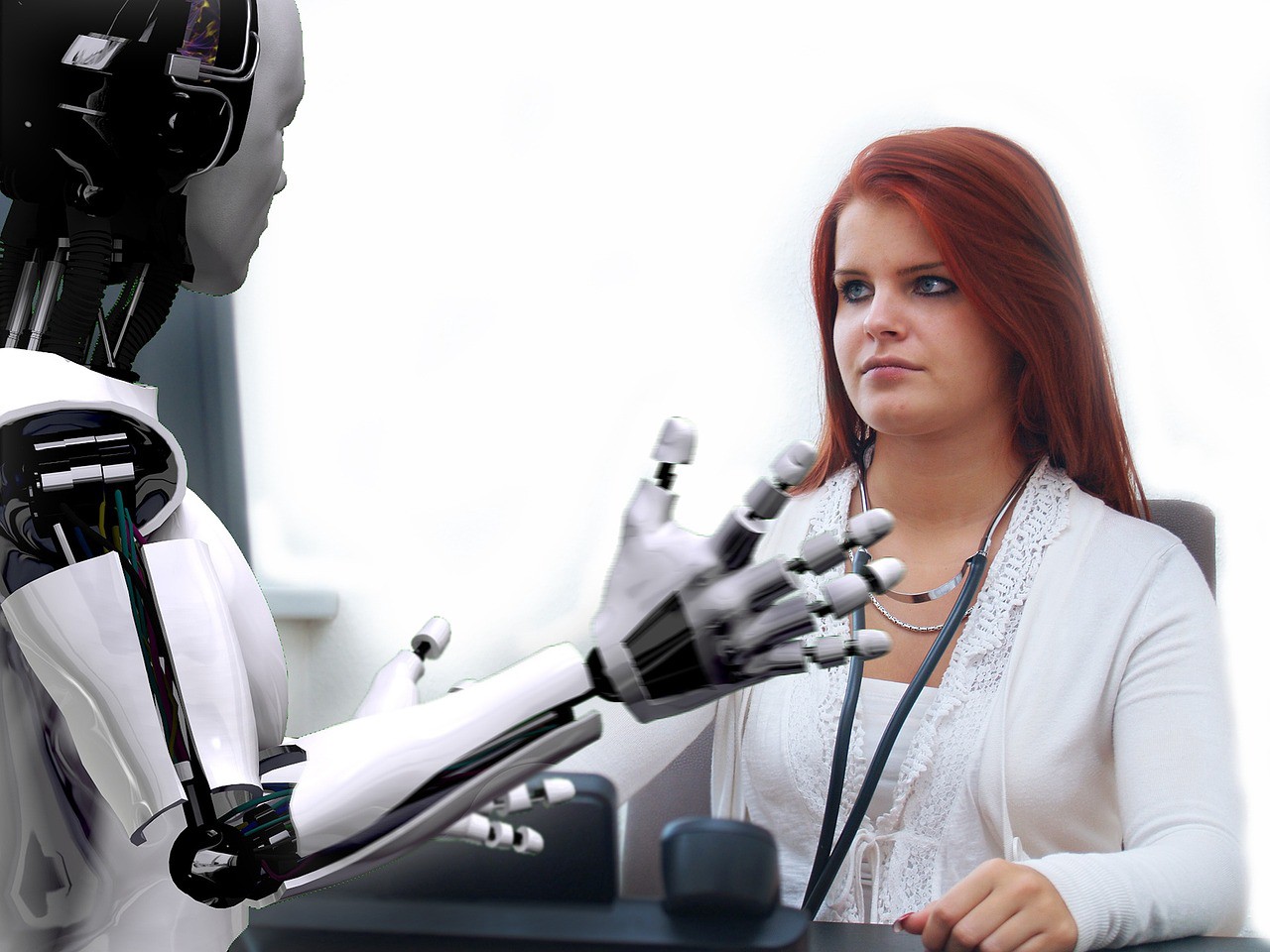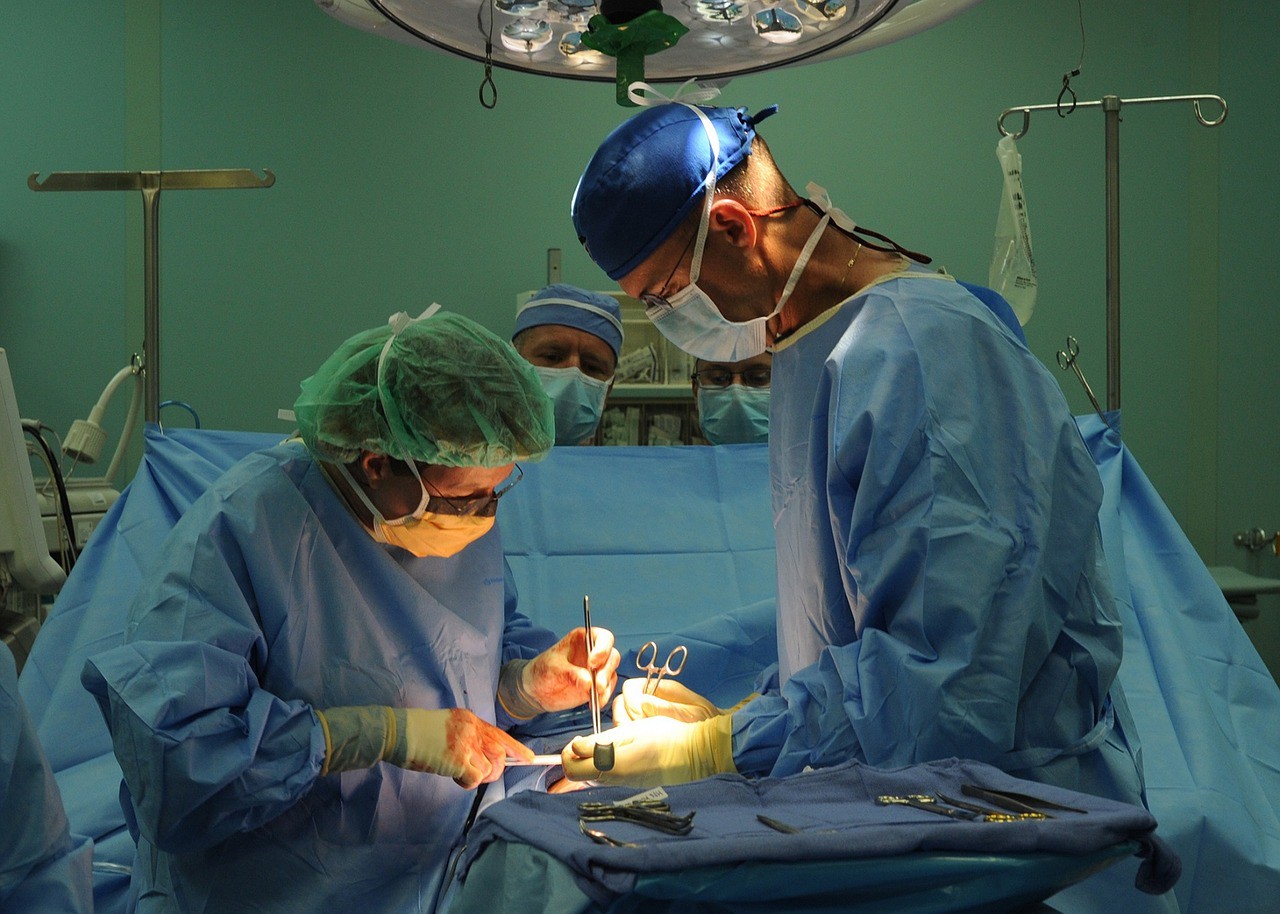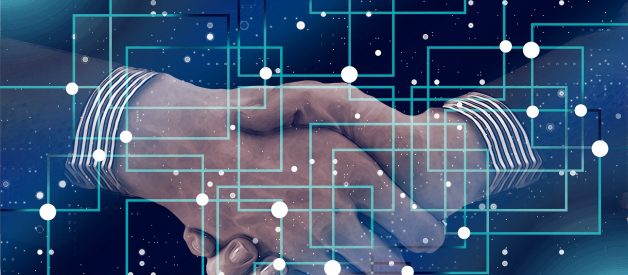Will AI replace all our jobs future ? Or will it help us to be better at our jobs ?
 Image by Thomas Meier from Pixabay
Image by Thomas Meier from Pixabay
Artificial Intelligence (AI) is becoming smarter and more efficient than a human. Therefore, many jobs are going to be automated and replaced by AI in the near future.
Robots are really smart and have a low margin for error compared to humans. They can do many things better than humans. That is why so many jobs are being taken by machines. Machines are not only cheaper but they are less trouble also. As well, they wouldn?t ask for a raise or slack around and they would work 24/7 nonstop with no complaining.
However AI will never be able to replace all human jobs, but they will help employees to be better at some jobs which cannot be fully automated.
There are 02 reasons why they cannot be fully automated. The first reason is the limitations of AI. And the second reason is people don?t practically accept robots for some professions because of the risks involved in AI.
Therefore, some jobs will not be replaced because it is impossible to program everything man gets from nature into a machine. And some jobs will not be replaced because people prefer and trust humans over machines for those jobs.
What jobs will NEVER be replaced by AI ?
Jobs that intrinsically require the person to be a REAL HUMAN, not just if it can replicate all the five senses of a human being and has the same or better cognitive and mental abilities as a human being, and appear exactly human. In other words, any job that requires the human brain and heart will NEVER be replaced.
Humans are part of nature. AI is something not natural from the definition. So AI can never replace a REAL HUMAN.
However, robots can replace everything which has a repetition of tasks, because they can be programmed to do so.
When it comes to humans, they have the power of thinking which can never be programmed into a robot. Even to create a robot, you have to think first.
Robots can never have this amazing power of thinking and creativity we people have. Therefore, some jobs can never be fully automated.
Here is a list of 15 jobs that are unlikely to be replaced by a machine. They can all be assisted by AI in some way, but not completely replaced:
1. Human Resource Managers
 Image by Gerd Altmann from Pixabay
Image by Gerd Altmann from Pixabay
AI can basically help to match job candidates with a certain job, interpret how candidates may work and get decisions. But in some cases, an applicant can look great only ?on paper? and still not work out. In this case, AI would simply help you get the wrong candidates for the job faster.
It?s very hard to automate human management and development. They have to help employees and solve work conflicts. So human resource managers should have good interpersonal and reasoning skills to understand fellow humans better and think outside the box.
Therefore, the human resources manager should be a human at the helm to manage interpersonal conflict with the help of non-cognitive and reasoning skills, which cannot be programmed into robots.
So robots will never be able to truly replace human resource managers. But AI will become an increasing presence that will help human resource managers.
2. Computer Systems Analysts
The computer systems analyst is a computer-related job which is among those least threatened by AI. In fact, the more our economy relies on automation, there is a demand for computer system analysts who can implement and manage those systems.
Computer systems analysts have to work in collaboration with others to review computer system capabilities, workflow, and scheduling limitations, review computer system capabilities, improve or automate existing systems and analyze user problems, procedures, and requirements. So that would make it near-impossible for robots to perform.
3. Teachers
There are already a number of teaching aids available in schools and colleges. No matter how sophisticated these teaching tools and aids are, the role of the teacher is very crucial. They are real humans with values who inculcate a sense of belonging and ensure that wisdom is passed on.
We all have access to a lot of knowledge, but wisdom is the most difficult to obtain. It is easier to assimilate the knowledge when someone teaches and we always need someone to provide instruction and answer questions.
Although basic teaching can be handled by bots, people prefer human interaction in teaching. That is where the job of a teacher becomes significant. Robots cannot provide that.
4. Sportsmen
 Image by Jonas Hasselqvist from Pixabay
Image by Jonas Hasselqvist from Pixabay
It would not be much fun to watch robots playing baseball. The idea of a robot gymnast is kind of pointless too.
Being an athlete essentially requires you to be human. That?s what makes sports fun to watch, challenging to play and generally worthwhile.
Sports are all about what can or can?t be achieved by the human body which robots don?t have.
5. Judges and Lawyers
Their jobs are mainly based on strategy, case analysis, and negotiation. Subjective knowledge and opinion based results are vital in their role.
Therefore, the legal system needs people who can make sense of complex laws and argue on behalf of their client which cannot be achieved from a robot.
6. Writers
Writing is art. Putting thoughts into words is an extremely difficult task. Writers have to create and produce original content out of others? ideas, situations, or their imaginations.
Although Machines excel at analyzing structured data, robots can?t mimic the talent, creativity, and imagination of a good writer.
AI can help with automated social media messages, writing prompts, title or headline suggestions, spot-checking for clarity, and plagiarism scan. But books, plays, and movies will always be written by humans.
Robot?s capabilities are limited to what they are programmed to do. They can?t generate creative, innovative, and original ideas as humans.
7. Chief Executive Officers
 Image by Gerd Altmann from Pixabay
Image by Gerd Altmann from Pixabay
Chief executive officers have to motivate huge teams of people working for them, represent companies? objectives and missions, and inform broad strategy.
Also, human beings will always be comfortable to invest in companies which are run by human but not by a robot.
And the job of chief executive officers is mainly based on leadership. It?s nearly impossible to automate leadership. Because leadership is subjective, it?s hard enough to teach it to machines.
8. Event Planners
Event planners have to coordinate and negotiate with contractors, vendors, organizations, groups, and volunteers to make things come together.
Because of the organizational and people skills like creativity and coordination involved, this will make another impossible role to automate.
9. Politicians
Do you want your country to be run by a machine ?
Do you believe that a robot will be just and fair and humane when deciding matters related to humans?
Do you believe that a robot will empathize with you and care about you?
Politicians should have the capability and extreme versatility to handle any possible unforeseen scenarios to govern or rule over people. Robots don?t do versatility very well.
Because emotions in politics are vital, having a machine with no feelings of happiness, remorse or sadness could not hold such a position in this world.
Therefore, people will always be governed by people and so will machines.
10. Magicians
 Image Source: ShutterStock
Image Source: ShutterStock
Magic is the art of producing certain effects with the help of supernatural forces with the sleight of hand, and almost the entire body. It is also an art of producing seemingly inexplicable results utilizing tricks.
Magician is the person who is skilled in tricks or spells. The subtleties involved requires naturalism, polishing, & maximum rehearsal. You know what isn?t natural ? It?s Artificial Intelligence.
11. Priests and Clergymen
Will you listen to machines preaching you ?
Do you like being baptized and married by robots ?
No one is going to listen to machines preaching us.
Priests and clergymen are someone who have the power to guide and preach to their audience. They have to have faith, emotion, and empathy to inspire other people.
Robots only function with evidence based on data and facts. These soulless buckets of metal have absolutely no concept of faith, emotion and empathy, which makes them not suitable for the job as a member of clergy.
12. Psychiatrists and Psychologists
Because a robot has never been a human, how can it understand our emotions ?
As well, they can?t communicate on the same level of a human conversation. Robots can never comprehend the problems within the human mind.
Alexa and Siri can?t even understand our search requests half of the time.
Do we really want them to give us advice about our traumatic childhood memories from the third grade ?
Also, psychology is a profession, where human the touch is certainly preferable. Both psychiatrists and psychologists apply their behavior, learning, and expertise in mental health to help people succeed emotionally, behaviorally, socially and academically.
Robots cannot help people with their mental problems. So it?s quite impossible to have a robot psychiatrist or psychologist.
13. Surgeons
 Image by skeeze from Pixabay
Image by skeeze from Pixabay
Surgeon?s duty is more than just machines that take input and give some sort of relevant output. Although most routine surgeries can be fully automated but we will still need them to be supervised by surgeons.
Of course AI will drastically change the field and make it better in many ways like prediction of disease patterns, faster and accurate diagnosis and so on. Although machines can assist in surgeries in many ways, surgeons are required to connect with the patient at many levels and robots can?t do that.
14. Occupational Therapists
Occupational therapists treat disabled, ill, or injured patients though the therapeutic use of everyday activities.
They work with individuals who have conditions that are emotionally, developmentally, physically or, mentally disabling. Therefore, the profession requires human attention and interaction, which robots don?t have.
15. Professional Singers
AI has been able to create and generate own music. AI will replace a lot of music players in the future because there are already robotic orchestras. But AI can never kill how fans feel towards their favorite singers.
Singing comes from the emotions singers portray. Robots have no emotions. If they sing it will be monotonous and not pleasing to the ears. Therefore, robots will never have the human ability to perceive emotion in live performance.
Apart from these jobs, the jobs that create AI and robotics like robot manufacturing and maintenance, AI programming would probably NEVER be replaced by AI.
Conclusion
All in all, AI is still a very long way from having the range of human capabilities necessary for most types of work.
Robots will never replace most jobs that require a specific combination of rational thinking, common sense, flexibility, manual dexterity, worldly and special knowledge, empathy, and communication skills.
And people prefer and trust humans over machines for all jobs which require judgment, decision-making and, complex reasoning.
Because no machine can replace a REAL HUMAN, any job that requires the human heart and brain will NEVER be fully automated.


